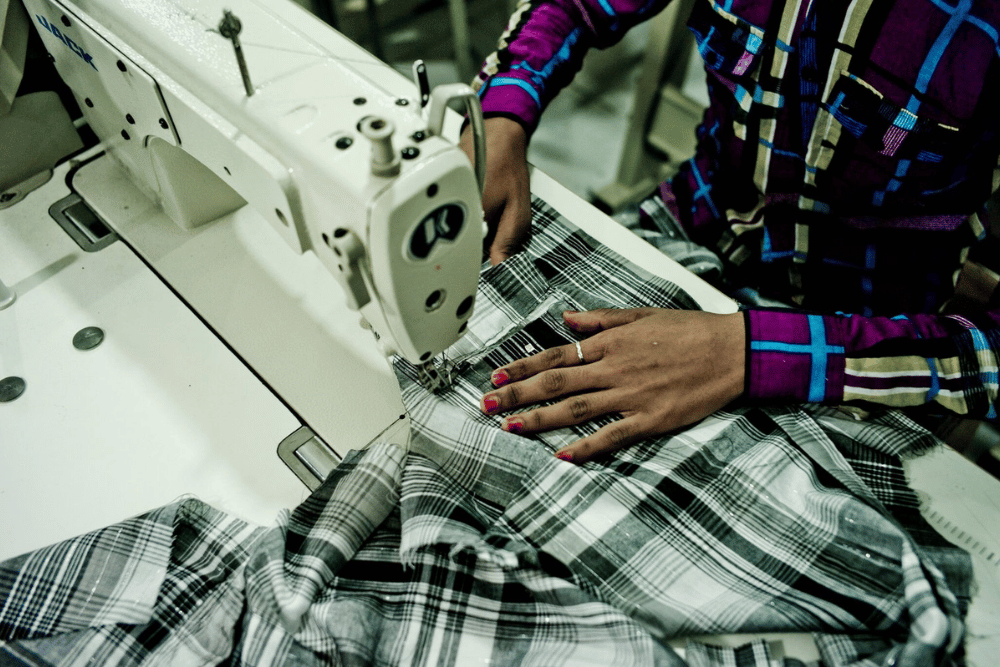Ethics might be said to be “doing the right thing”, derived from the golden rule to treat others as you would like to be treated.
For businesses, the question then becomes: How are the workers who make our products treated, and how are we treating the environment in which our products are made, and our producers live?
Our co-founder Dr Susan Maiava joins Ethical Sourcing Consultant, Jules Carroll in answering the question “What can businesses do to improve their ethics and the positive impact this can have on their business and their customers’ perceptions of them?”
First, it is important that businesses are not only clear on their own ethical priorities, but also those of their customers, and align their business approach with these.
In 2020 fair&good commissioned a random survey of 1000 New Zealanders to answer just that question: what are New Zealanders attitudes and behaviour around their own personal ethical consumption?
More than half of the respondents (57%) said a company’s ethics are important when deciding where to spend their money. Comments included “By using that company I take part in their ethics, if they are exploiting workers then I am exploiting workers”. Fair wages were the most important factor (45%), followed by safe working conditions (36%) and environmentally friendly production (13%).
Almost half of all respondents (47%) believed that choosing products from ethical brands is the most effective way to make a difference, well beyond the effectiveness of giving to a charity (11%) or becoming an activist (11%)! “I believe that using my power as a consumer is one way I can challenge injustice and support organisations that are being ethical, as I know that money talks with companies.”
The need to know, the need for trustworthiness and transparency was very important. Survey responses included. “I like to know the workers are being treated right” and “It’s important to know slave labour is not used on products I buy”. And transparency will be rewarded by customers: “I like to buy from companies that value the rights of people making the products” and “Knowing that a worker is getting fairly paid and helps them support their family and economy makes me feel good about supporting a company.”
Customers are looking for companies that share their ethics, voting with their money, and using their purchasing power to create demand for ethical products. If brands are aligned, they will be rewarded with intense loyalty.
Second, businesses must work towards embedding ethical values and practices into the core of their work, applying them consistently across their business (from working pay and conditions to environmentally responsible packaging), and committing to it in a public, clearly articulated written statement.
Jules defines an ethical company as one which understands and takes responsibility for the impact of its decisions and practices on the people in its community and environment, transparently working towards turning that impact to a positive.
Businesses need to understand who their community is. Connections to the community and environment most negatively impacted, out of sight deep within the supply chain, were once rarely considered.
This was brought into sharp focus in 2013 by the tragic Rana Plaza collapse in Bangladesh with the loss of 1,134 lives. Initially, the big fashion brands didn’t know if the workers killed included those who made their garments, because they didn’t know their supply chains beyond the ‘first-tier’. It soon became clear that garment workers for many well-known brands (including Benetton, Gucci, Versace, Prada and Walmart) were killed, deeply shocking the fashion industry and horrifying consumers.
Consumers began demanding transparency and accountability. Movements such as Fashion Revolution took hold, and the life-changing documentary “The True Cost” was made. Industry collaborations (such as Mindful Fashion) are evolving to bring about change. The internet is brimming with information, and consultancies are available to give advice. There are no longer any excuses.
Many OECD countries now have modern slavery legislation. Sadly, despite the urging of many committed advocates, New Zealand does not yet. View more about the campaign for modern slavery legislation in NZ here.
Here at fair&good, we are creating a hub of useful resources and information for growing ethical businesses on our Resources page, and in our Journal , ethical business owners share their experience and advice.

Third, monitoring, auditing and on-the-ground support to help suppliers improve their practices where appropriate are all fundamental to any ethical sourcing programme.
Mid to larger sized brands should have Code of Conduct Agreements with their suppliers. Brands must trace their entire supply chain, the treatment of workers and human rights risks at each tier, including sub-contractors, right back to the production of inputs. Ethical business is about much more than fair pay; it includes no child or forced labour, reasonable and regular working hours without forced overtime, safe working conditions, equal opportunities for women and marginalised groups, and stable and regular prices paid for crops.
Brands prioritising environmental ethics should review their products’ life cycle and supply chain to identify where the most damage is happening. Then eliminate harmful processes, remove products from their range or source better alternatives such as GOTS fabric or Fairtrade ingredients.
For some brands there will be legal priorities, to modern slavery legislation for example. For others it will be shifting to local production. Some brands may shorten their supply chain and source directly from second or third tiers to increase transparency. For those who are further along the journey it will be all of these and more, looking for consistent and steady improvements across all areas.
Finally, educating the customer is also the responsibility of an ethical company.
If marketing departments can convince consumers to buy things they don’t really need, then they can also convince consumers to buy ethically and sustainably.
But avoid ‘washing’. Transparency must be driven by honesty, not the need to make marketing statements. Understanding where you are, where you want to be, measuring performance and openly talking through your journey, warts and all, are essential to an authentic ethical approach.
fair&good is making it easy for consumers to identify and find ethical products all in one place via the fair&good online ethical directory website, with links through to the brands’ websites for purchasing.
Adapted from an article first published 27/11/2020 as an opinion piece in Stuff by Dr Susan Maiava and Jules Carroll (Updated 15/5/24)

